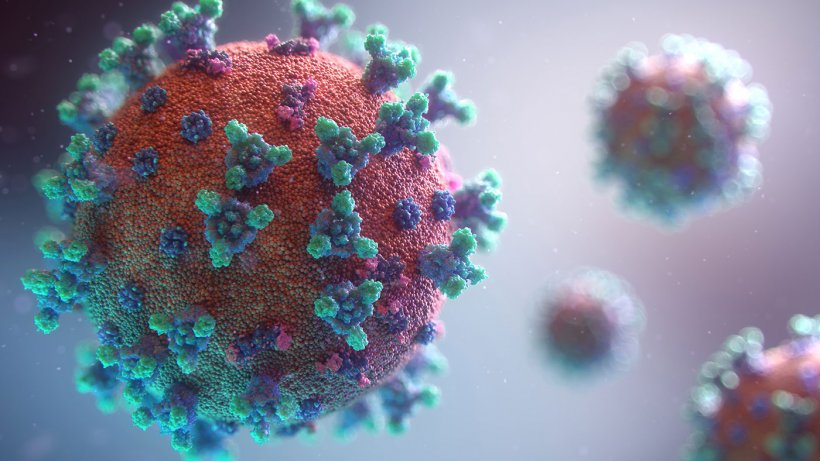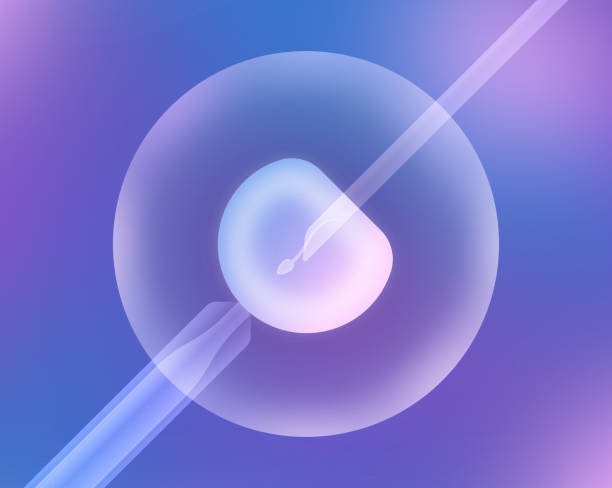Women’s health is not simply a matter of avoiding illness; it is a lifelong journey of nurturing, protecting, and celebrating the body in all its stages. From the first whispers of adolescence to the wisdom of older age, each chapter of life carries its own health needs, vulnerabilities, and opportunities for prevention. Essential screenings and checkups are not burdensome obligations but acts of empowerment—moments to pause, to listen to the body, and to honor the gift of longevity.
Science tells us that early detection is often the difference between a silent disease and a curable condition. Emotion tells us that health is the foundation upon which dreams, relationships, and legacies are built. Together, they underscore the importance of screenings by age: a roadmap designed not to instill fear but to cultivate resilience, confidence, and peace of mind.
The Meaning of Preventive Care
Preventive care is the unsung hero of modern medicine. It is easy to visit a doctor only when something feels wrong, but preventive checkups offer something more profound: the ability to catch conditions before symptoms appear, to intervene when treatments are most effective, and to prevent suffering before it begins.
For women, preventive care is uniquely powerful. Hormones shape much of female health, influencing metabolism, fertility, bone density, and even emotional well-being. Screenings for reproductive health, cancer, cardiovascular disease, and bone health become vital checkpoints in a woman’s life. Just as one regularly services a car to ensure safety on the road, the body too requires regular assessments to sustain vitality over the decades.
Adolescence and Early Adulthood (Teens to 20s)
The teenage years and early twenties are the roots of lifelong health. These years often carry the misconception of invincibility: the body feels strong, recovery is swift, and chronic diseases seem like distant concerns. Yet this stage is crucial for building a foundation of awareness.
Young women benefit from establishing a relationship with healthcare providers who focus on preventive care rather than crisis response. A first gynecological visit typically occurs in the late teens or early twenties, a time to discuss menstrual cycles, sexual health, contraception, and protection against sexually transmitted infections (STIs). Pap smears, recommended starting at age 21, check for cervical cell changes that could develop into cancer.
Vaccinations also play a role in prevention during these years, most notably the HPV vaccine, which dramatically reduces the risk of cervical, vaginal, vulvar, and even throat cancers. Screenings for mental health, body image concerns, and eating disorders are equally vital, for adolescence is as much about emotional well-being as physical health.
The Reproductive Years (20s to 30s)
As women move into their twenties and thirties, health priorities expand to include fertility, pregnancy, and the long-term effects of lifestyle choices. These are the years when habits around nutrition, exercise, sleep, and stress management crystallize—habits that will echo into later decades.
Routine pelvic exams and Pap smears remain essential, often accompanied by HPV testing after the age of 30. For women who are sexually active, STI screenings are recommended, as infections like chlamydia and gonorrhea can silently impair fertility if left untreated.
Pregnancy introduces its own suite of screenings, from blood pressure monitoring to gestational diabetes checks. Prenatal visits become anchors of preventive care, not only safeguarding the baby but also ensuring maternal health. Even for women not planning families, discussions around fertility preservation, endometriosis, and polycystic ovary syndrome (PCOS) are important.
Equally critical during these years are screenings that reach beyond reproductive health. Blood pressure checks, cholesterol assessments, and diabetes screenings provide early warnings of heart disease, which remains the leading cause of death among women. Mental health evaluations—particularly postpartum depression screenings—can be life-saving.
The Transitional Years (40s)
The forties are often a period of transition. For many women, this decade brings the first signs of perimenopause, along with shifts in metabolism, mood, and bone health. Screenings and checkups during this stage become a balance between maintaining reproductive health and preparing for the changes ahead.
Mammograms typically begin at age 40, serving as a frontline defense against breast cancer. While guidelines may vary based on personal and family history, mammography remains one of the most powerful tools for early detection. Cervical cancer screenings continue, though women with a history of normal results may extend intervals between tests.
Bone health assessments begin to gain importance. Women lose bone density more rapidly after menopause, but prevention starts early. Calcium and vitamin D intake, along with weight-bearing exercise, form the foundation, while bone density tests may be recommended for women with risk factors such as family history or prior fractures.
Cardiovascular screenings grow even more vital. Blood pressure, cholesterol, and blood sugar levels should be closely monitored, as risks for heart disease and diabetes increase with age. The forties are also a time for conversations about colon cancer screenings, particularly if there is a family history.
Midlife and Menopause (50s)
The fifties often usher in menopause—a natural milestone that marks the end of reproductive years but also the beginning of new health challenges. Estrogen, once protective, declines sharply, altering the landscape of a woman’s health.
Mammograms remain a cornerstone, with continued annual or biennial screenings recommended. Cervical cancer screenings may taper off after 65 if prior results have been consistently normal, but the fifties are often a transition zone where continued vigilance is advised.
Bone density testing becomes critical, as osteoporosis risk accelerates. A simple scan can detect weakening bones long before fractures occur, allowing for preventive measures such as medication, diet, and lifestyle adjustments.
Cardiovascular disease demands even greater attention. With estrogen’s decline, heart attack risk climbs. Blood pressure, cholesterol, and diabetes screenings must be diligently maintained, accompanied by discussions around weight management, physical activity, and stress reduction.
Colorectal cancer screenings begin in earnest at age 50, whether through colonoscopy, stool-based tests, or other methods. These screenings can prevent cancer by catching precancerous polyps early.
Mental and emotional health deserve equal focus. The menopausal transition can bring mood swings, anxiety, and sleep disturbances, making checkups an opportunity to address mental well-being alongside physical changes.
The Wisdom Years (60s and Beyond)
For women in their sixties, seventies, and beyond, health care becomes a symphony of monitoring, prevention, and graceful adaptation. Screenings are not simply about longevity but about ensuring quality of life—mobility, independence, and joy.
Mammograms may continue, though frequency often depends on overall health and life expectancy. Bone density tests take on heightened importance, as fractures become a leading cause of disability. Cardiovascular health remains paramount, with continued monitoring of blood pressure, cholesterol, and diabetes.
Vision and hearing screenings often become routine, as these senses influence safety, cognition, and emotional well-being. Screenings for cognitive health—assessing memory and mental function—are also increasingly emphasized, for early detection of dementia allows for better planning and support.
Vaccinations return to the spotlight. Shingles vaccines, flu shots, and pneumonia vaccines all protect against illnesses that can be especially severe in older adults. Regular skin checks help detect cancers that may arise after decades of sun exposure.
The wisdom years are also a time for candid conversations about end-of-life care, advance directives, and quality of living. Far from grim, these discussions empower women to shape their own care with dignity and autonomy.
The Emotional Power of Screenings
Behind every screening is not just a test, but a story. A mammogram that catches a lump before it spreads. A Pap smear that identifies precancerous cells and prevents tragedy. A cholesterol test that leads to lifestyle changes and averts a heart attack.
Screenings are not about finding sickness; they are about protecting futures. They are about ensuring that women can watch their children grow, pursue their passions, and savor the decades ahead. Preventive care is a gift women give not only to themselves but to their families and communities.
Barriers and Advocacy
Despite the proven power of screenings, barriers often stand in the way. Financial constraints, lack of access to healthcare, cultural stigmas, and misinformation all prevent women from receiving essential care. Advocacy becomes as important as medicine itself—breaking down barriers, spreading awareness, and ensuring that preventive care is not a privilege but a right.
Women themselves are powerful advocates. By prioritizing checkups, by asking questions, by encouraging friends and daughters to do the same, they weave a culture of care. Healthcare providers, too, bear responsibility, offering compassionate, accessible, and culturally sensitive services.
The Science of Tomorrow
Women’s health screenings are not static. Advances in genetics, imaging, and personalized medicine promise to revolutionize preventive care. Genetic testing already helps identify women at high risk for breast or ovarian cancer, leading to tailored screening plans. Artificial intelligence is enhancing the accuracy of mammograms. Blood tests for early detection of multiple cancers are under development.
Tomorrow’s screenings will likely be more precise, less invasive, and more personalized. Yet the heart of preventive care will remain unchanged: empowering women to know their bodies, protect their health, and live fully.
Conclusion: Health as a Legacy
Women’s health is more than biology; it is legacy. It is the ability to nurture families, to contribute to communities, to pursue dreams with strength and vitality. Screenings and checkups are not interruptions to life but investments in it—moments of foresight that allow women to live not only longer but better.
By honoring preventive care at every age—from the tender years of adolescence to the golden glow of elderhood—women weave resilience into their own lives and into the lives of those who love them. Health is not just the absence of disease; it is the presence of energy, purpose, and possibility. Screenings are the guardians of that health, silent sentinels standing watch over the journey of life.






